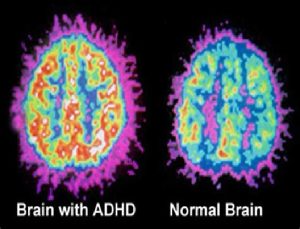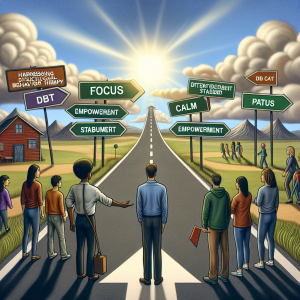Disclaimer: I am not a scientist, so take what I’ve said with a grain of salt. I’ve done some reading online and that’s it – let me know if you have your own view of hypnagogia and lucid dreaming! 🙂
Lucid Dreaming and Hypnagogia
I had dinner with a friend from the Intro to DBT class on Tuesday night. I had about four-six large cups of jasmine tea. I thought, at the time, that jasmine tea was a non-caffeinated herbal tea. Boy, was I ever wrong! When we were ready to leave, it was around 11:00 pm. It was getting late and I had to get to work for 8:30 am. I went to bed and all of a sudden, as I began to fall asleep, I heard a loud explosion. The sound startled me and woke me up. Every time I would try to fall asleep I would hear the loud sound. There was nothing around me that was creating this sound.
I quickly realized that I was experiencing a “hypnagogic state” or “exploding head syndrome” (it’s less ominous than it sounds). Hypnagogia is relatively common and it’s something that I’ve dealt with for some time. If I’m more tired than usual (and full of caffeine), I’m more likely to perceive the loud sounds as I’m beginning to fall asleep. Exploding head syndrome or hypnagogia occurs as an individual is beginning to fall asleep and because of my anxiety, I often become so startled by the sound that I trigger an episode of insomnia.
It’s not unusual for people with anxiety, i.e., GAD, panic disorder, OCD, to have a harder time falling asleep (d’uh!) What is more interesting, is that hypnagogia is more common in the anxious because we tend to experience surges of adrenaline in our sleep. These surges of adrenaline make it difficult for us to fall into a regular sleep cycle. This makes sense when taking into account that hypnagogia is awareness during the dream state. The adrenaline, I believe, is maintaining awareness while we are asleep!
There are moments when I experience sleep paralysis (feeling like I can’t move while I am dreaming, but my perception tells me that I am awake). Sleep paralysis is also a symptom of hypnagogia. Now we are taught to do the pros and cons in DBT and I can easily say that the biggest pro of hypnagogia is lucid dreaming (note that a lucid dream can also occur during a hypnopompic state, which is a state of consciousness leading out of sleep rather than into sleep) . I have the ability to lucid dream, this has nothing to do with the supernatural or the paranormal. Lucid dreaming, put simple, is the ability to gain awareness in a dream, which then leads to the ability to control said dream. I believe that my intensely sensitive spirit, along with my anxiety, have made me an excellent lucid dreamer. I do not quite understand the scientific perspective of hypnagogia and lucid dreaming, but from a psychological perspective I think that my anxiety has always given me strange sleep experiences (other than the phenomena I’ve described above, I’ve also had nocturnal panic attacks and night terrors).
Other than the exploding head syndrome (hearing a very loud noise that startles the individual into wakefulness), I was also experiencing a sensation of floating, where, as I began to fall asleep, my body felt like it was being lifted internally (it’s hard to explain… I’m told that it can be compared to the sensation of a “body buzz” after smoking hash). This, apparently, is another common symptom of hypnagogia.
For those of you who have no idea what I’m talking about, if you have ever felt like you were falling in sleep and suddenly your body “jerks” you back to wakefulness, this is due to hypnagogia and it is called a “hypnic jerk”. On top of all of that, I was freezing (more than usual) and it was worrying me (I thought that I was poisoned or had some kind of nerve damage). LOL
DBT Skills
First, I realized that I had to radically accept that I was going to have a bout of insomnia, caused by all of the jasmine tea that I consumed. I also had to accept the strange sensations/sounds that I felt from the hypnagogia. Acceptance helped a bit, as the exploding head syndrome stopped, but I continued to experience the floating sensations, which scared me. I reminded myself of the caffeine and that I had felt like this in the past. This was also a form of radical acceptance, but also describing (I labelled my thoughts/feelings/sensations), comparison from ACCEPTS and non-judgmental thinking.
Secondly, every time that I started “floating”, I would label that as a sensation, which led to acceptance. I found myself feeling calmer. I struggled a bit longer, as I unintentionally continued to wake up every time I began to fall asleep (adrenaline surges). Willfulness crept in and I started to cry. I knew that turning my mind was the only solution, so I went back to labeling/observing/describing the sensations/feelings/thought. I managed to sleep for a few hours.
I went to work! I had to use opposite action to get there. I was exhausted and fighting every moment to keep my eyes open. I don’t know if this has every happened to you, but I was so tired when I got to work that after I had some peppermint tea and oatmeal (have to take care of PLEASE, after all), I vomited. I looked forward to going home and getting some much deserved sleep! I cancelled my tutoring session and so I didn’t have any other responsibilities that night. Woo!





